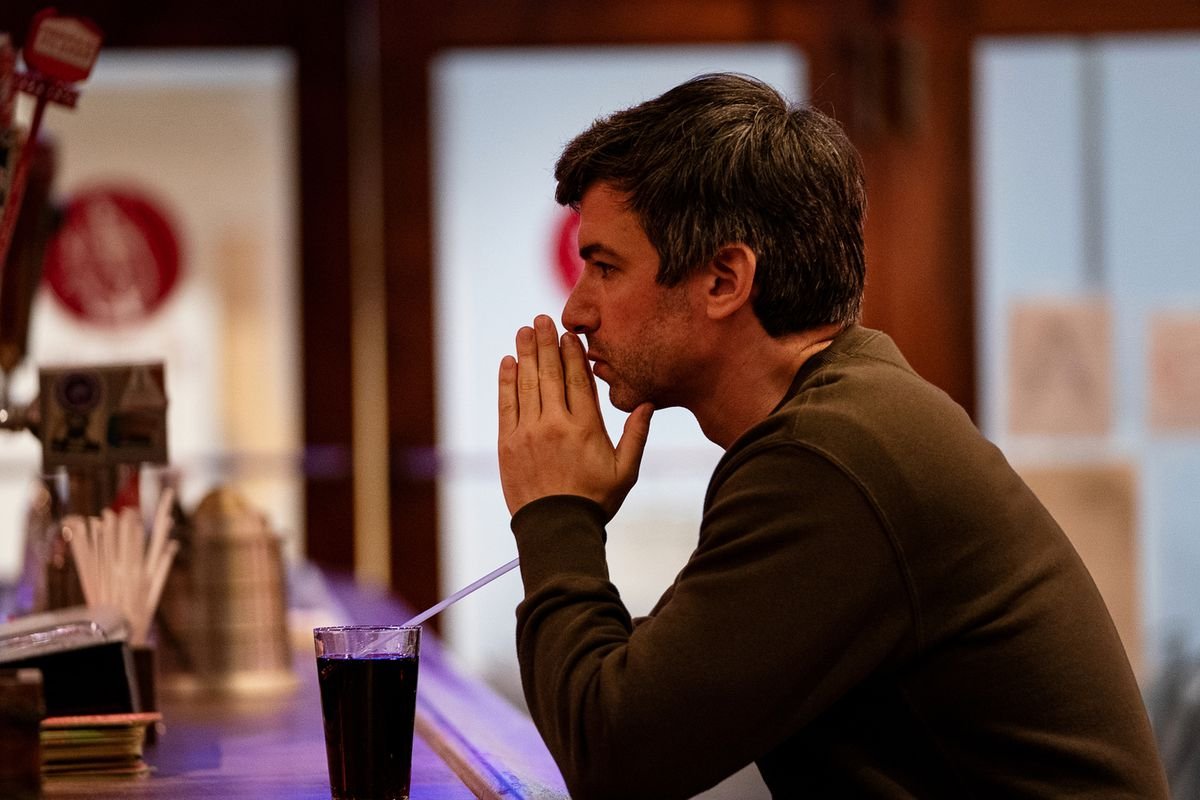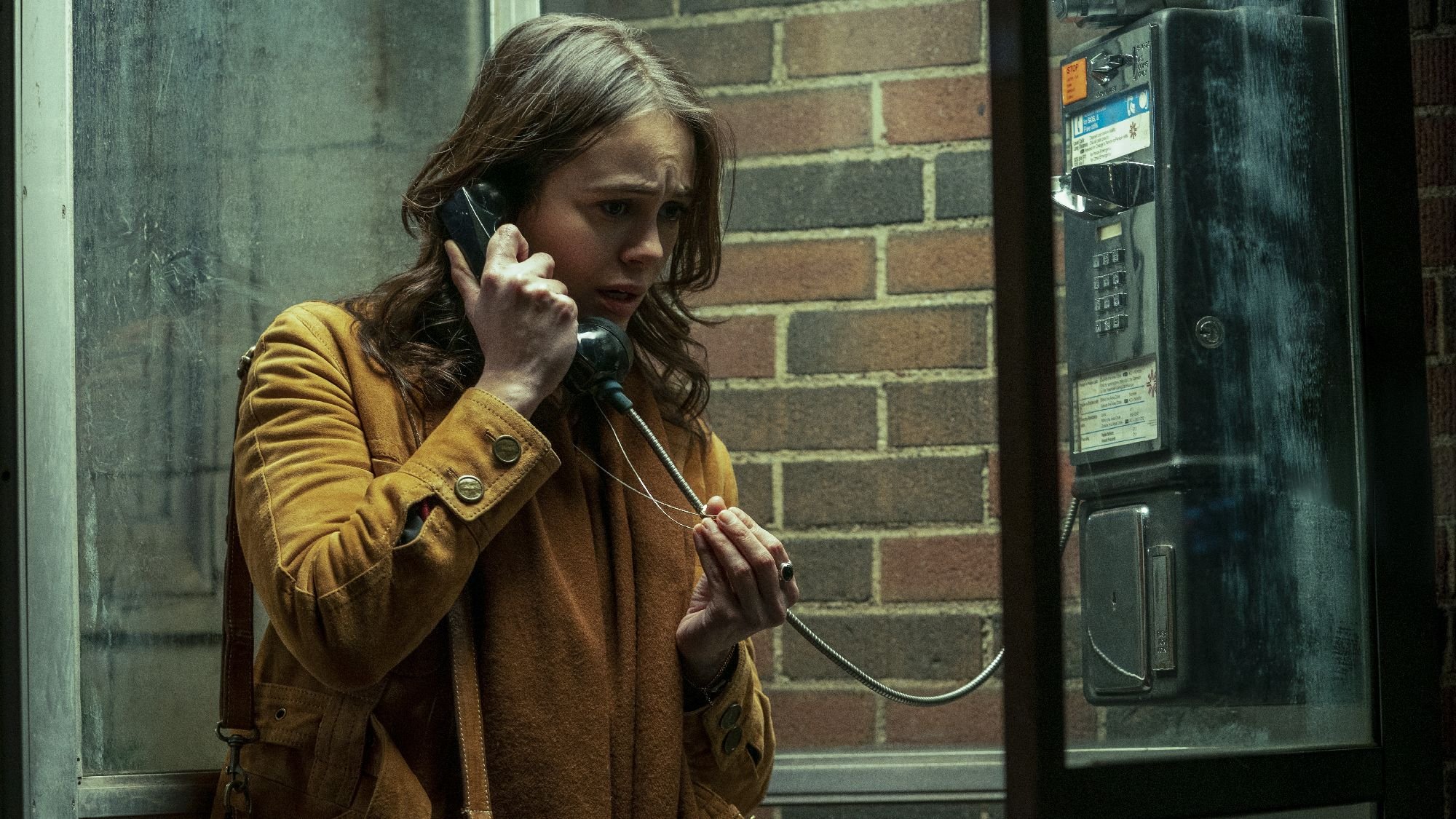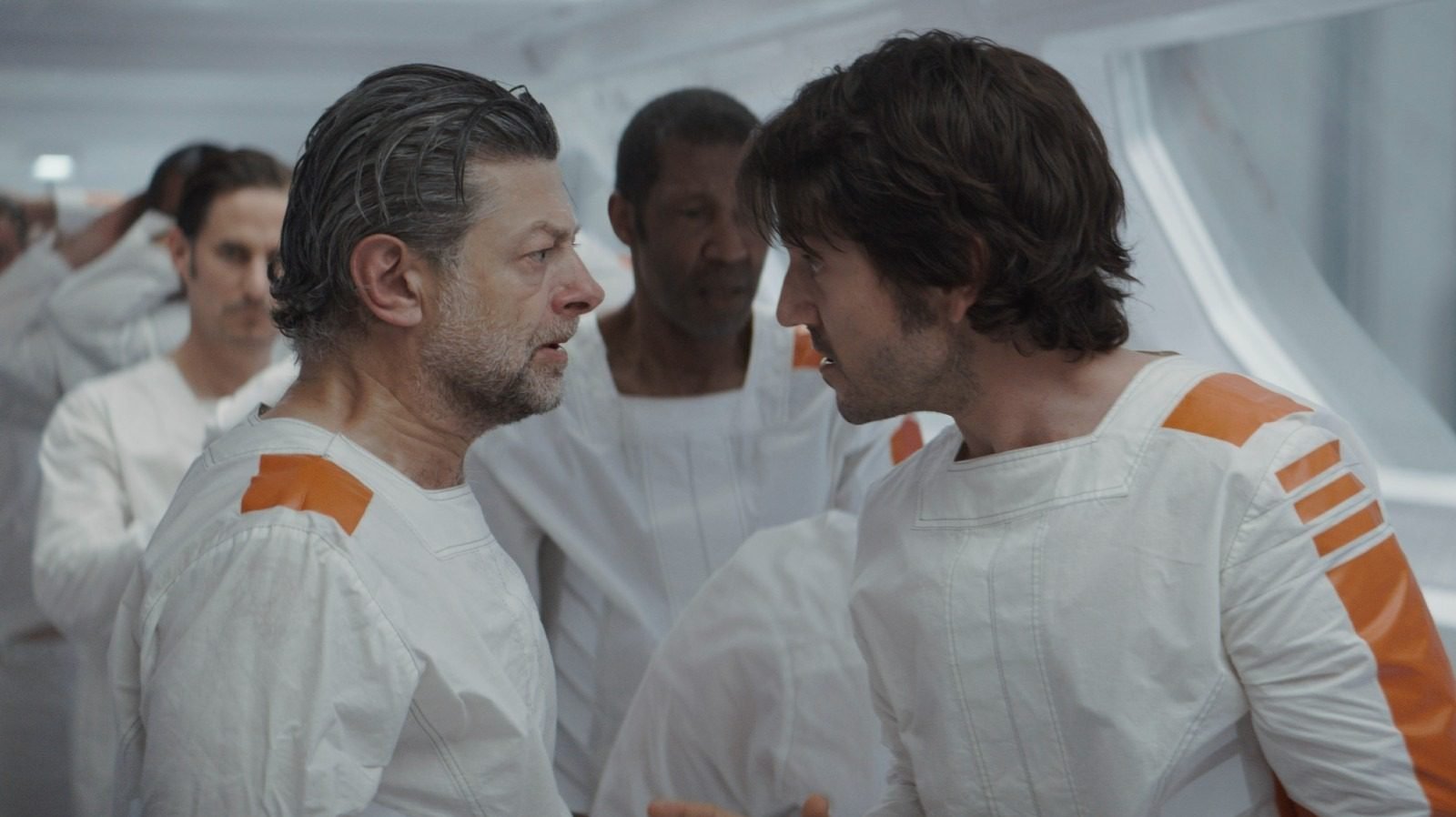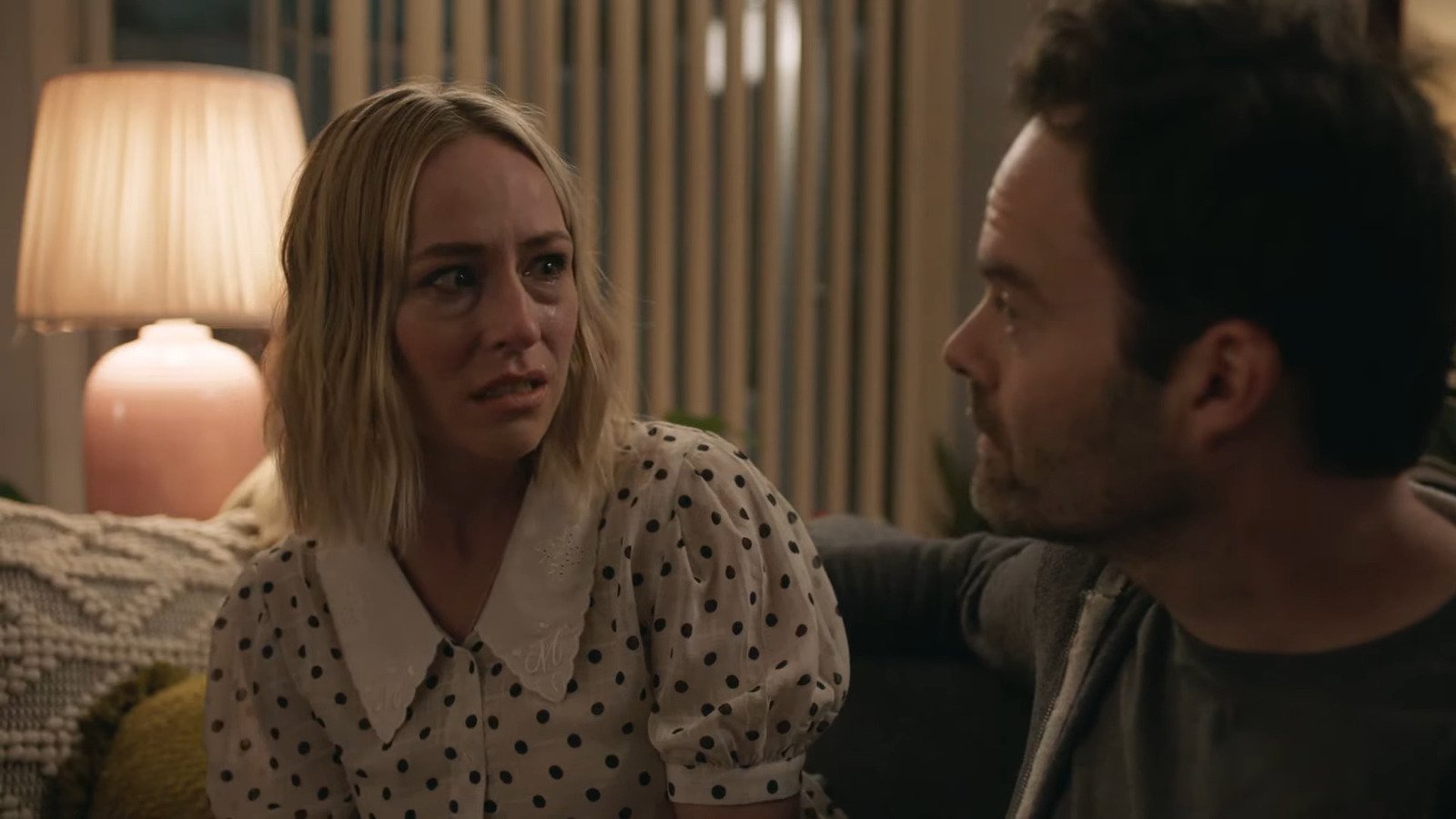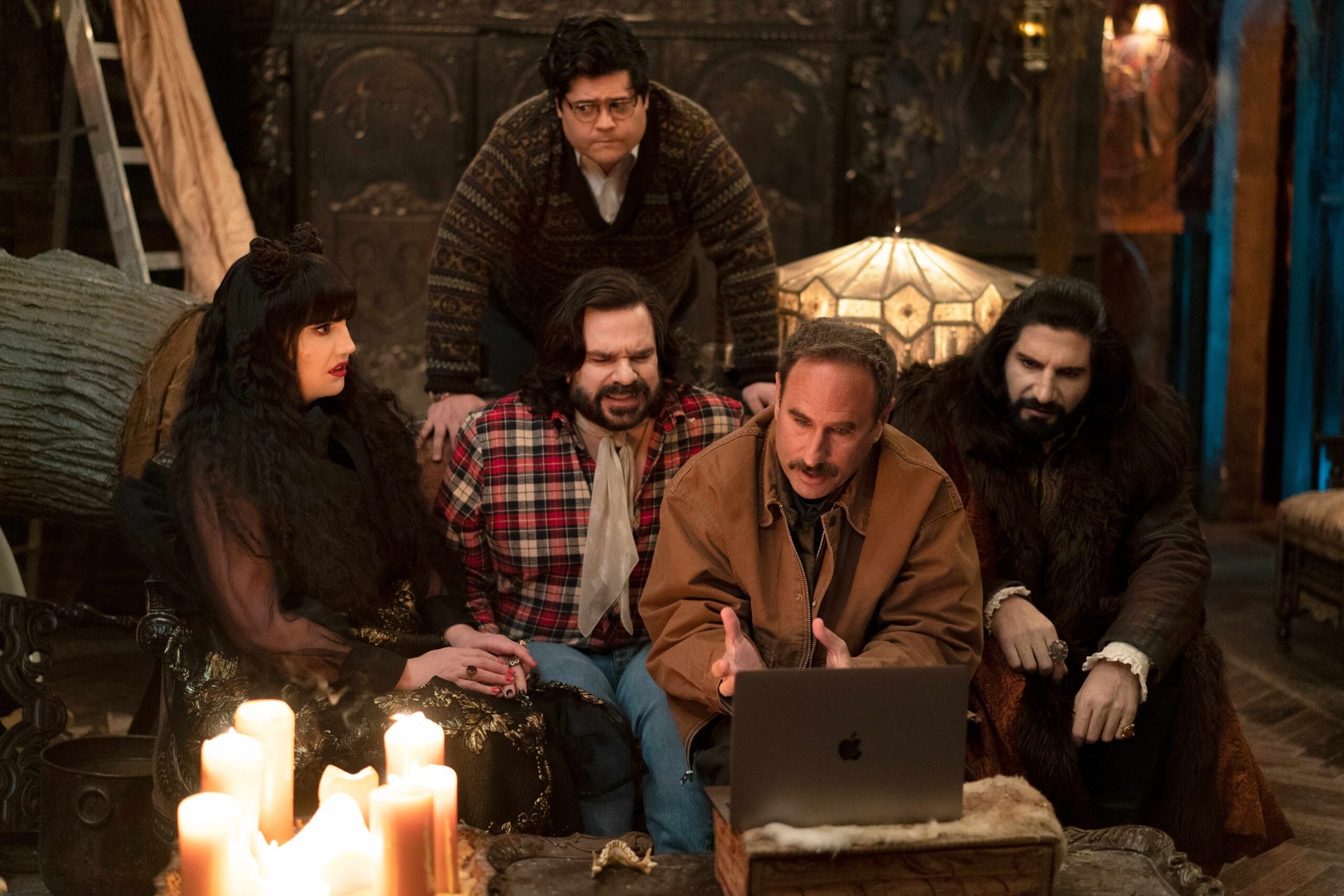Top 10 TV Shows of 2022
1. Better Call Saul (AMC) Season 6
Better Call Saul closes out its six-season run in remarkably understated and unexpected fashion. This is appropriate as Better Call Saul has been an outlier television show since it premiered in 2015. It’s never been what you expect. It’s a prequel that’s as good as the series that spawned it. It’s a franchise extension in an age of franchise oversaturation that resists the urge of self-mythologizing and fan service. It’s a television show that favours big-screen composition and editing, trusting the viewer’s patience like few other shows. And it’s a dramatic series starring a comedian (Bob Odenkirk) that proves said comedian is a great actor.
Better Call Saul does not end like Breaking Bad. Despite the presence of the cartel and occasional shootouts, the finale is not a combustible climax like you get in a typical crime thriller or in the series that spawned this one. Rather, the ending investigates the gradual moral degradation of Jimmy McGill with the sort of precision that the series brought to its legal and criminal proceedings. There’s no finality here such as we get with Walter White’s transformation from “Mr. Chips to Scarface”—as the famous pitch for Breaking Bad outlined it. Instead, the series, and this final season in particular, asks hard questions about the possibilities of change and whether unforgivable moral choices truly are unforgivable. The show was never black-and-white about its protagonist, although it does end with a black-and-white shot of Jimmy, in which he looks in the camera’s direction while it trucks left to right away from him until a wall blocks him from view. The shades of grey in this final, ambiguous image capture the true genius of the show.
Better Call Saul helps us understand this man and the seeds of his moral destruction. But it also knows that we’re always on the outside looking in. We cannot know what is truly happening in the heart of this man, and so, we must leave him without the satisfaction of condemnation or confession. It’s the perfect ending for a show about a man pitched between crime and the law, between hero and villain, forever irreconcilable, forever human.
2. The Rehearsal (HBO) Season 1
Has any television show upset so many people online in such spectacular fashion as The Rehearsal did in summer of 2022? The outrage caused by Nathan Fielder’s docu-comedy proves what a special show it is, since it plays entirely to the discomfort so many people feel living in our modern world. In the show, Fielder hires actors to recreate elements and situations from real people’s lives, so they can rehearse unpleasant emotional moments and feel more in control. But the premise soon spirals out of control as Fielder turns the show into his own rehearsal for life as a father, in which he experiences a compressed version of raising a child from baby to adult with the help of actors and his crew. The entire show seems like a hilarious, uncomfortable, absurd prank—seeing how far he could push normal people into accepting his facsimile of reality—but it’s also profoundly insightful about the modern human condition. One of the tragedies of our modern world is that so many people are crushed by the anxiety of the simple act of living with other people. The Rehearsal mines that anxiety for some of the most hilarious, uncomfortable, profound comedy on television in recent years.
3. The Righteous Gemstones (HBO) Season 2
I didn’t need a second season of The Righteous Gemstones, as the first was such a perfect encapsulation of the absurdities, hypocrisies, and, yes, redemptive possibilities of American evangelical life that I didn’t think anything more could be said. But I was wrong, as the second season furthers the character development as it pokes and prods these individuals, revealing new insights into American evangelical Christian life while also conjuring some hilarious gags. At moments, the filmmaking of The Righteous Gemstones is shockingly elevated, such as in the motorbike chase sequences or other depictions of criminal acts, which play as well as any crime thriller. Other moments tap the potential comedy of the 21st-century Christian life in some of the most absurdly hilarious ways, such as everything to do with Kelvin’s God Squad. But perhaps the best element of the season is its ability to surprise us with moments of grace and depth. This a great farce of American evangelicalism, but it’s also a great drama, as it splits the difference between mockery and apology better than any current television series.
4. Archive 81 (Netflix) Season 1
In so many ways, Archive 81 is the forgotten success of 2022. Adapted from a popular podcast and structured as part found-footage horror, part meta-narrative about the dangers of consuming horror stories, Archive 81 is the scariest horror story of 2022 and the most Lovecraftian. It masterfully mines negative space on screen, building some unbearable tension and great scares while resisting jumps and chases and other conventional ways that horror movies scare viewers. Not every story beat is elegant, and the ending is disappointingly a cliffhanger (one that will never be resolved due to the unfortunate cancellation of the series), but the story is involving and tragic, exploring character trauma and other new tropes of horror in ways that seem respectful and original instead of pretentious and tedious. In years to come, I suspect we’ll think back on this series as one of the horror gems of the 2020s.
5. Andor (Disney+) Season 1
Let’s get this out of the way: anyone who thinks that all Star Wars stories should be like Andor doesn’t know what they’re talking about. At the same time, if every new show or movie nowadays is required to be a spinoff from a pre-existing franchise property, then I hope we get more shows like Andor. The show focuses on one particular element of the Galaxy Far, Far Away (the formation of the Rebel Alliance) and investigates that element with precision and style. Many properties in the age of the big franchise like to pretend at genre sophistication (ahem, Marvel), but Andor looks and acts like a prestige political thriller, largely due to the steady hand of showrunner Tony Gilroy. The series helps us understand the psychology of its damaged hero and explores the mechanisms of bureaucratic imperialism and underground rebellion in ways that are both credible and exciting.
6. The White Lotus (HBO) Season 2
I didn’t think The White Lotus needed a second season since it worked so well as a miniseries, but the anthology approach with only one character from the original series returning this time around (Jennifer Coolidge’s fan favourite, Tanya) works well. This is as good as the first season. It might not have the same highs, as no character is quite as delightfully unhinged as Murray Bartlett’s Armond from season one, but it also avoids some of the preachy speechifying and more grandstanding political elements of the first season. The result is a consistently funny, occasionally insightful, and highly watchable skewering of the rich and powerful that doesn’t sacrifice genre satisfaction in the name of larger satirical messaging.
7. Barry (HBO) Season 3
Barry is about as dark and as funny and as brutal a television series as exists on TV right now. Both sitcoms and crime dramas examine the absurdity of human behaviour, whether trying to show the vapidity of modern dating in the former, for instance, or the desperation of a career criminal in the latter. The genius of Barry is the synthesis of the two genres and how it defamiliarizes both sitcom and crime genre elements through the show business and hitman threads of its narrative. For instance, it treats gang wars like comedic sight gags, killings like accidental pratfalls on a sitcom, and criminal conspiracies like farcical mixups. It also depicts the struggles of a man to be a successful actor and romantic partner as a tragic, pathetic undertaking that’s no less exhausting and debasing than that of being a criminal hitman. I could imagine an alternate version of Barry that is insufferably pretentious, but the show that exists is funny and clever and frank about human desperation without ever being grating.
8. What We Do in the Shadows (FX) Season 4
I wrote in last year’s top 10 that I worried that What We Do in the Shadows would soon exhaust its comedic ideas. Luckily, and surprisingly, that wasn’t the case, as the show found many new and absurd avenues to explore that didn’t tread familiar ground. Much of this season’s genius depends on the absurd concept of having Matt Berry’s Laszlo raise a newborn Colin Robinson from infancy to adulthood, after Colin’s death and rebirth at the end of the last season. The gambit to put a de-aged CGI version of Mark Proksch’s face onto child actors pays huge dividends, as the profoundly unsettling and absurd visual plays into the increasing absurdity of the scenarios that Laszlo puts Colin in. Other moments also amuse, such as a running gag involving Nandor’s djinni, who he frequently uses to grant some of the pettiest wishes imaginable, and the entire episode structured as an in-universe episode of a home renovation show. The mockumentary doesn’t get much bang for its buck these days, but What We Do in the Shadows continues to use the comedy format to good effect.
9. Atlanta (FX) Season 4
For whatever reason, Atlanta both returned from a four-year hiatus in 2022 and a few months later released its final season, ending the show for good. If only season three had been released, Atlanta wouldn’t have made this list. The detour to Europe (mostly Amsterdam) for the entirety of the season takes away one of the show’s greatest strengths: its atmospheric depiction of Atlanta. And the decision to feature several one-off episodes without any of the major characters is more annoying than bold, an attempt by Donald Glover to take the show’s episodic approach one step too far and transform the show into a true anthology about nightmarish visions of black America. Season three nevertheless does have one of the all-time great celebrity cameos on a TV comedy (well, two, if you include the unhinged appearance of Alexander Skarsgaard in the season finale), but it is overall a disappointment for a show of this calibre.
Luckily, season four was much more like Atlanta of seasons one and two, with dreamy examinations of the urban lives of these four individuals and hilarious gags that are pitched between Key & Peele sketches and David Lynch scenes. The final season also provides one more all-timer episode for the series, “The Goof Who Sat By the Door,” a fake documentary about a fictional black animator who took over Disney in the mid-90s in order to create the “blackest movie of all time,” A Goofy Movie. The way the episode aces the style and substance of TV documentaries, while also pillorying modern pop culture criticism and the media’s condescending depictions of the arcs of black people’s lives, is truly brilliant. Season four was excellent overall, but it’s “The Goof Who Sat By the Door” in particular that’ll be remembered.
10. Westworld (HBO) Season 4
What turns out to be the final season of Westworld (after HBO cancelled the series before a planned fifth and final season) is something of a return to form after the much-reviled third season. I liked the third season and its exploration of algorithmic decision-making and the corrosive influence of social media and larger tech companies, but this final season has more of the hallmarks of a good Westworld season: a new park, which recreates the 1920s; time jumps; surprising deaths; multiple timelines; puzzle-like storytelling; and a reliance on emotional and thematic texture over realism. The series explores the act of consciousness—not just the question of what makes a human, but the sensory experience of being in the world and remembering the past—in a way that enlivens the generic material. It’s prestige television hokum done well. I’ll miss it.

